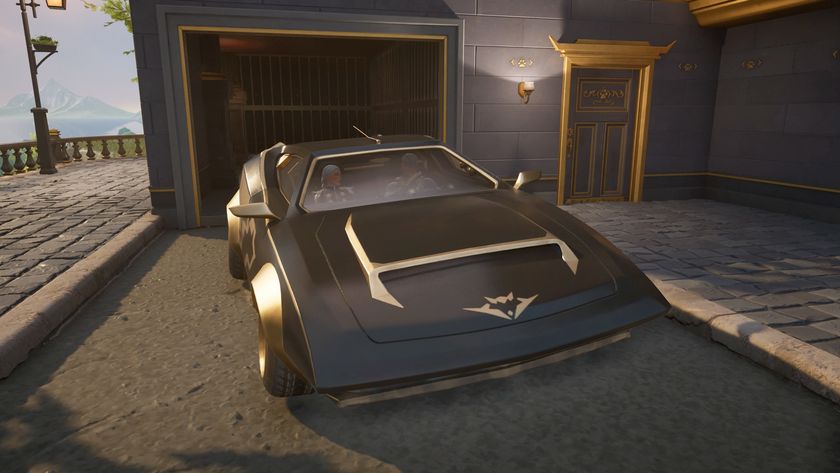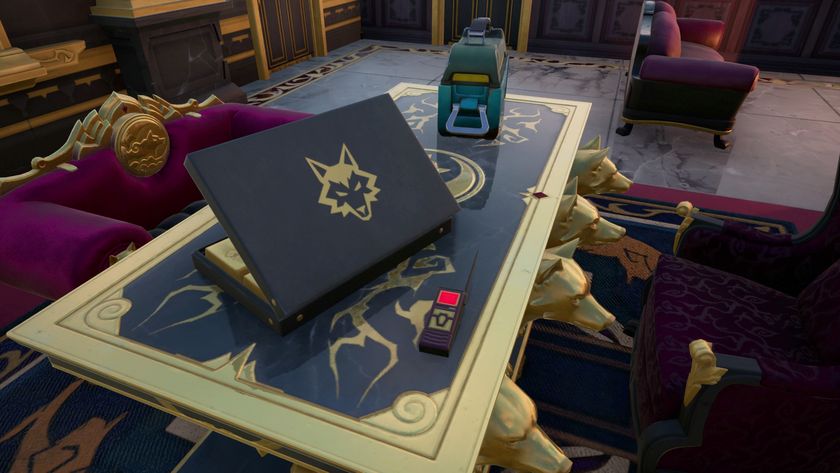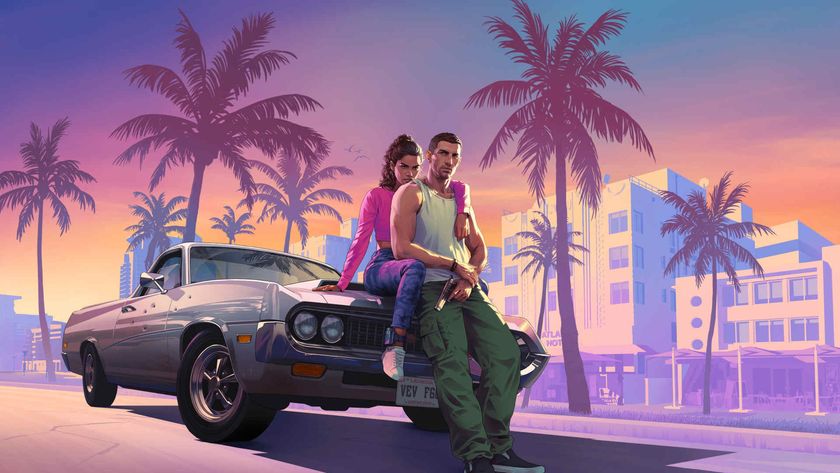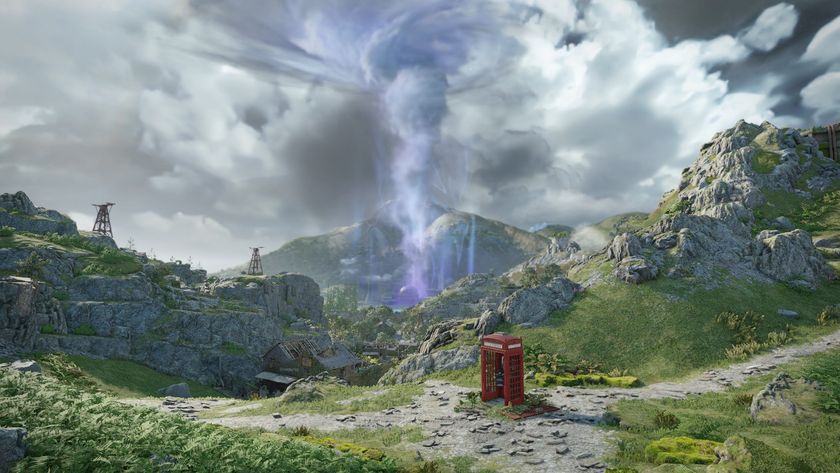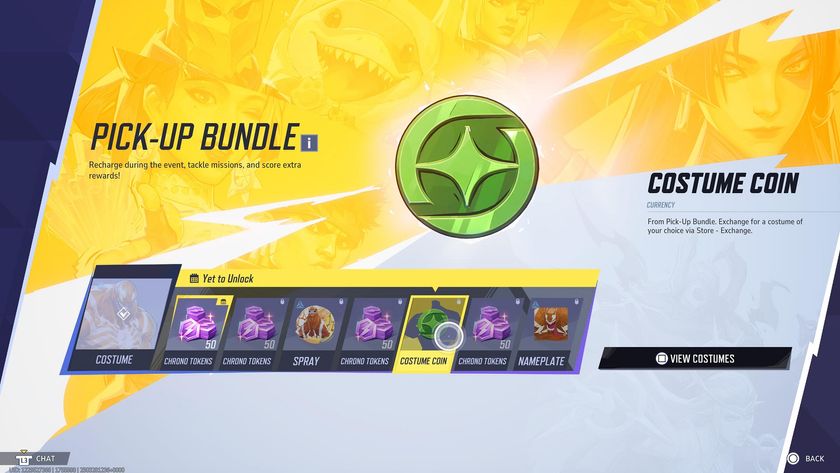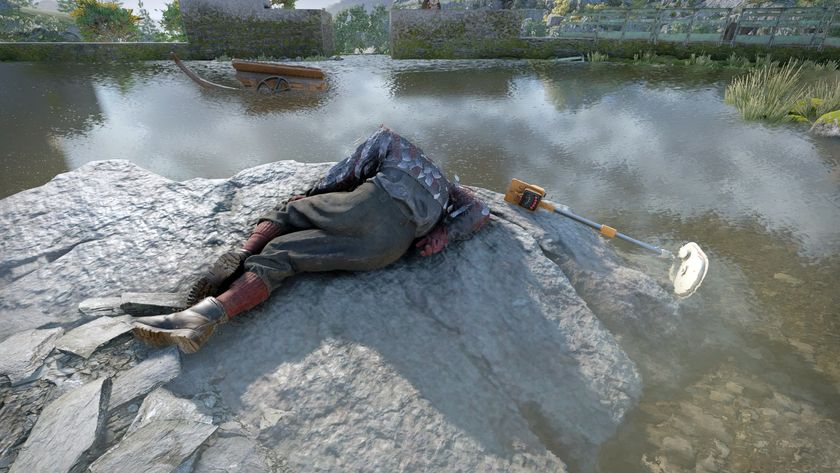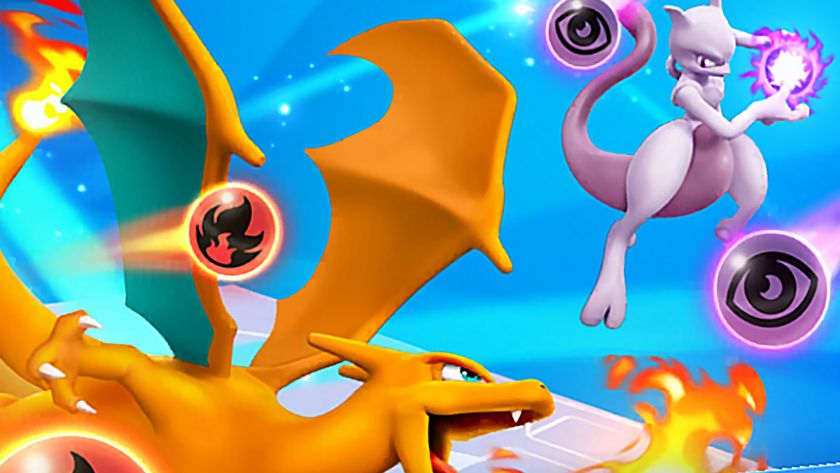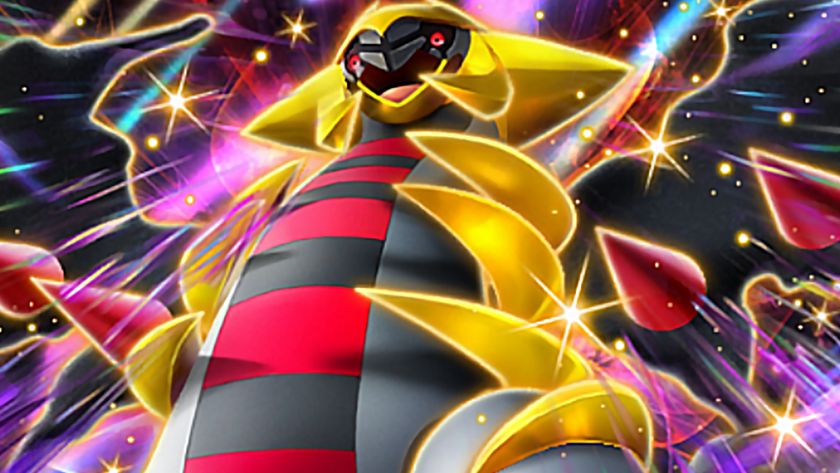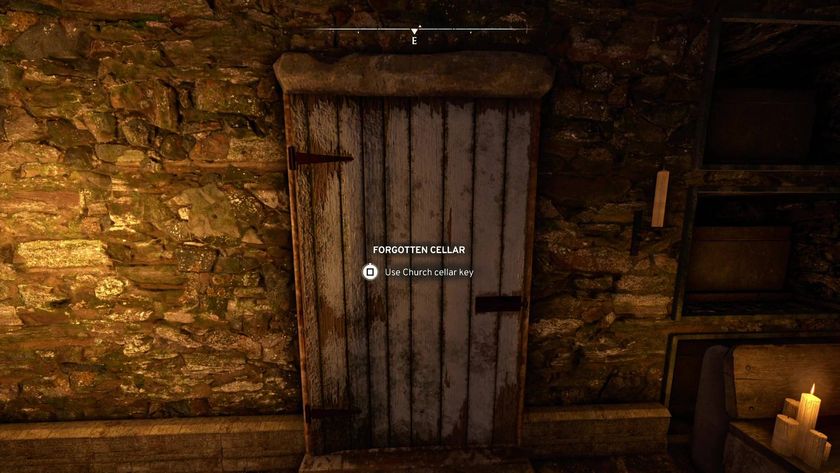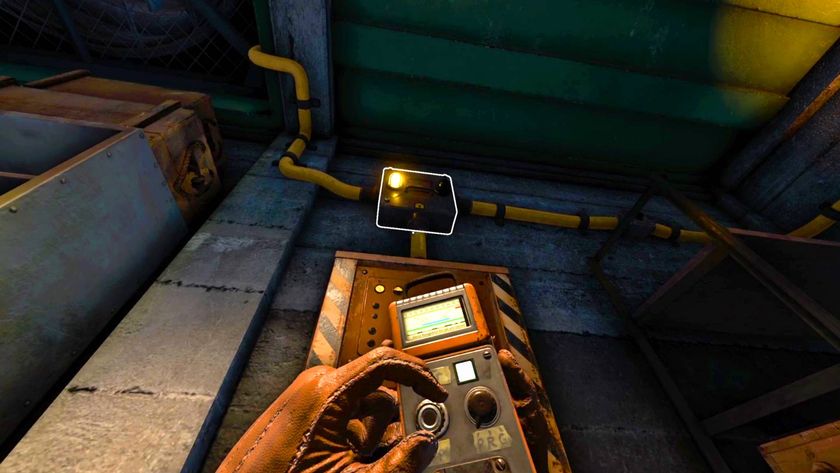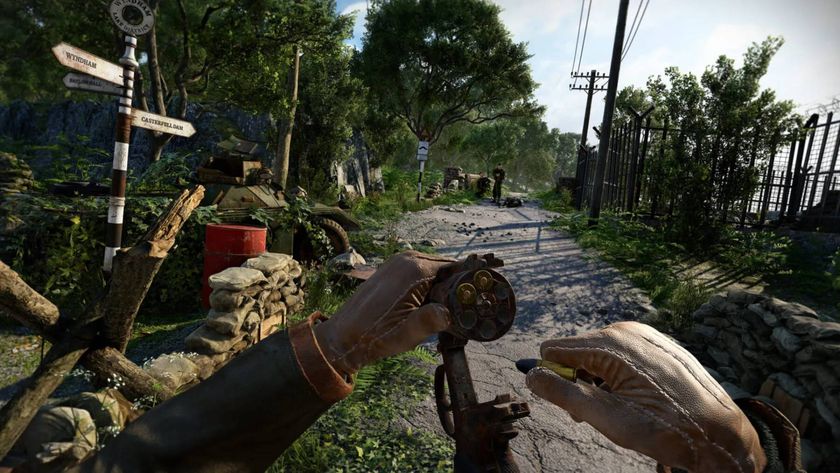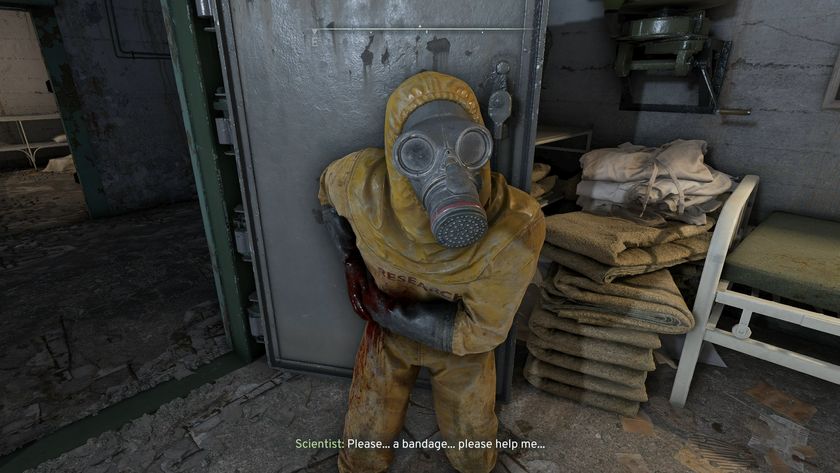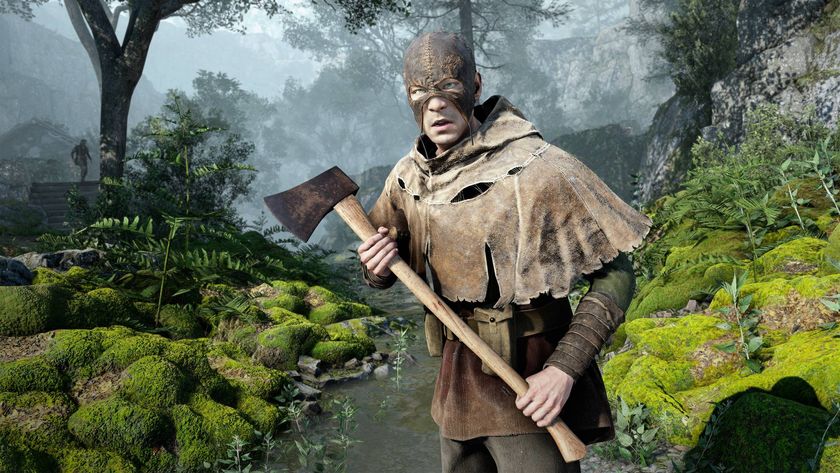Best Bloodhunt archetype and classes
Best archetypes and classes in Vampire The Masquerade Bloodhunt
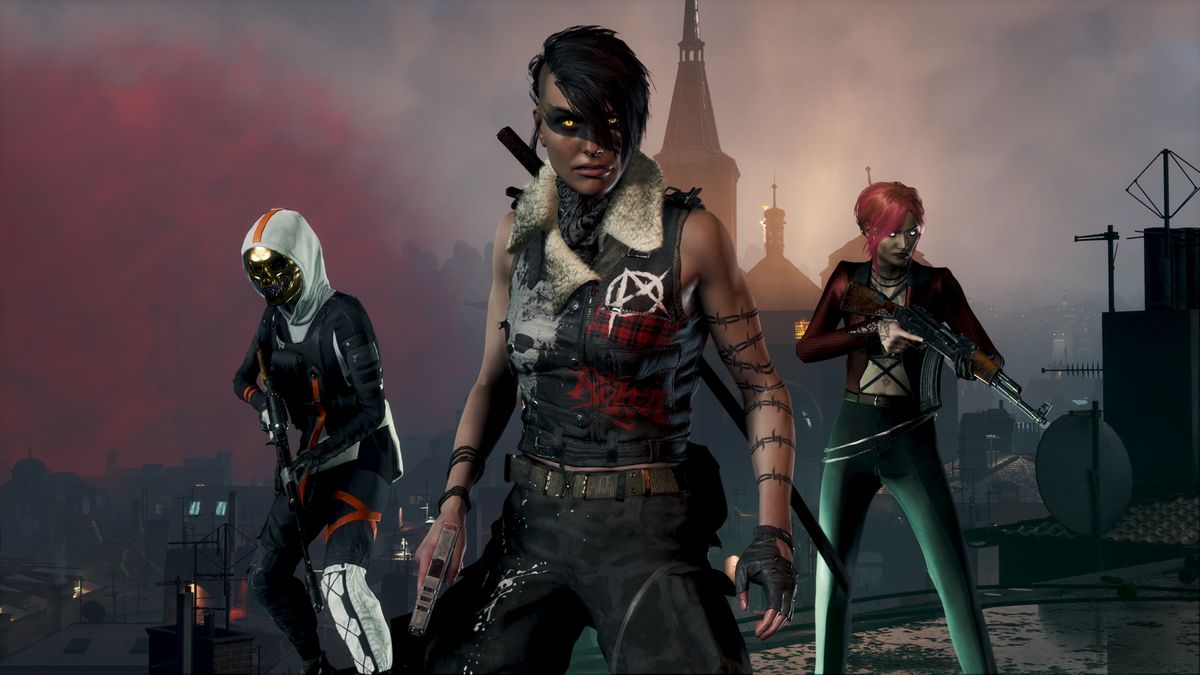
The best Bloodhunt archetypes and classes are very much dependent on how you play Vampire The Masquerade, with each of their abilities serving different roles and being the best in different situations. It's also worth mentioning that no archetype is so good that it clearly outclasses all other options - a testament to good balancing - and at the end of the day, a skilled player will always have the advantage, no matter who's playing whatever archetype.
With all that in mind, we've outlined the best archetypes and classes in Vampire the Masquerade Bloodhunt below, discussing their strengths and weaknesses and how they should be played for best effect, including a tier list on what we found strongest.
Best Bloodhunt archetypes tier list
At time of writing, our tier list would tentatively rank the best Bloodhunt archetypes and classes in this order:
- Brute (Brujah)
- Enforcer (Ventrue)
- Saboteur (Nosferatu)
- Vandal (Brujah)
- Muse (Toreador)
- Prowler (Nosferatu)
- Siren (Toreador)
Click on any of these classes or scroll down to find out more about them! Now all that being said, there were some difficulties arranging this tier list, and what's best for newcomers isn't necessarily what's best for more experienced players. And of course it doesn't help that some archetypes, like the Muse, are very contextual, thriving in certain circumstances and being very unhelpful in others - meaning that you need to know where you're needed or else risk wandering in a situation you're not suited for.
Each archetype has three specific powers - a clan power shared by all classes in the clan, a unique passive power that works in the background without needing to be manually triggered, and a special archetype power unique to that class. These powers are usually all focused on a particular kind of play - stealth, close-quarters combat, support, and so on, though all archetypes can use all weapons and equipment found around Prague.
Below we've framed these classes to explain what's good about them, bad about them, and the best way to play them if you want to strive for victory. Of course, this is only by our experiences - as with many games, the best class is the class you're best with!
1. Brute (Brujah)
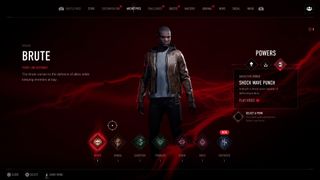
- Clan Power: Soaring Leap (Perform a powerful jump forwards)
- Passive Power: True Grit (The Brute replenishes up to half of their health while not taking damage)
- Archetype Power: Shock Wave Punch (Unleash a shock wave capable of deflecting bullets)
- Pros: Great all-rounder, good for beginners, closes distance effectively
- Cons: Abilities don't help much once actually in close-combat
The Brute is basically a lovely jack-of-all trades - they can get in and out of combat quickly with their Soaring Leap, close the distance safely by throwing up a moving barrier ahead of them with the Shock Wave Punch, and restore more health than normal once combat is over. However, their abilities have limited use for actually killing other vampires. Their Archetype Skill can help knock foes back - a decent idea if you're fighting on the edge of the red mist or near water - but it doesn't do much damage on its own terms and players will see it coming if you trigger it from a distance. Still, extra health regeneration ain't bad, and the simple skillset makes it great for new players to learn the ropes.
2. Enforcer (Ventrue)
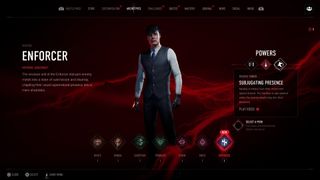
- Clan Power: Flesh of Marble (Harden your skin for a brief duration, turning you fully invulnerable as long as offensive actions are not used)
- Passive Power: Subjugating Presence (Nearby enemies have their movement speed slowed. The Venture is also alerted when the enemy would step into their presence)
- Archetype Power: Unyielding Charge (Rush forward, dealing moderate damage and silencing enemies for a brief duration. Silenced enemies cannot use vampire powers while affected)
- Pros: Melee powerhouse, capable of safe escapes
- Cons: Basically no ranged options, Charge is a bit wimpy, has a learning curve
The Enforcer has gone through a redemption arc for us - useless when we first tried it, but since proving its value ten times over when used correctly. This is an archetype clearly for melee fighters, as its charge attack and brief invulnerability are used to close the distance before unleashing hell on a (now slowed and silenced) player. And if things get dangerous, Marble up and flee using the brief period of immortality.
The downsides are that fighting out of melee range basically means you don't have much to use. Marble still keeps you safe, but your other powers are next-to-useless. And while we're griping, the Charge is a bit of a damp squib - the silencing is nice, but it's a short-range attack, hard to control, and doesn't actually hurt as much as you'd hope. Best to use this in ambushes as a way of announcing yourself.
3. Saboteur (Nosferatu)
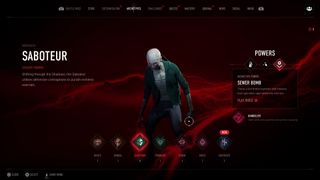
- Clan Power: Vanish (Become invisible and move rapidly for a brief duration)
- Passive Power: Unseen Passage (Turn semi-invisible when crouching)
- Archetype Power: Sewer Bomb (Throw a bomb that explodes and releases toxic gas when approached by enemies)
- Pros: Master of stealth, good in the late-game, bombs are deadly
- Cons: Unseen Passage is not good, no direct combat powers
We'll go to bat for the underrated Saboteur, who has to be played carefully for the best effect - no barrelling in like the two classes above, instead you need to be quiet, lay traps, snipe enemies and use careful ambushes. If you're spotted, use your Clan Power to get out of there and lay low, or set up a counterattack. It's another class with a learning curve, but very effective when you understand it, especially in the late game when space is getting limited - surround yourself with deadly explosives and keep your head down while your opponents blunder into them.
The downsides are that you don't really have much power in direct combat, especially if you're working with second-tier guns, and more frustratingly the Unseen Passage power is overselling itself when it speaks of "semi-invisible". You might go undetected from a distance if nobody's looking for you, but it's not that hard to see you, and any action beyond slow waddling breaks the illusion, so you can't even use it for safer sniping or healing.
4. Vandal (Brujah)
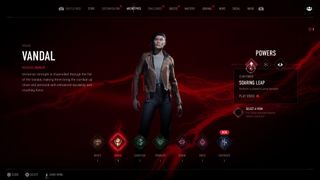
- Clan Power: Soaring Leap (Perform a powerful jump forwards)
- Passive Power: Adrenaline Rush (Gain moderate damage resistance when in close vicinity of enemies)
- Archetype Power: Earth Shock (Leap forward and crash upon the ground, dealing damage and hurling enemies upward)
- Pros: Works well with teams and in close range
- Cons: Unique powers can be a bit limited
The Vandal is basically the Brute, but not quite as versatile. Also focused on close-quarters combat, the Vandal works well as a kind of gundog, flushing out enemies with Earth Shock and using their Adrenaline Rush to not die in the process. This means that it's a character more suited to team games than solo experiences, barrelling through foes to set them up for allies to gun them down.
Problem is that while the Vandal's powers are useful, they're quite hard to use well. The Earth Shock takes some learning, and its range isn't great, especially considering how much everybody's constantly moving. And while damage reduction is an excellent thing, the specifics are vague enough to mean that it's easy to misjudge your own abilities.
5. Muse (Toreador)
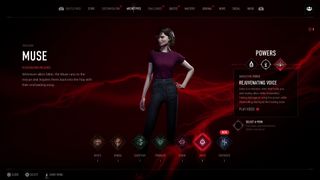
- Clan Power: Projection/Dash (Send out a projection of yourself, which you can dash to)
- Passive Power: Final Act (When downed, the Muse regenerates slightly faster and their cooldowns are instantly refreshed)
- Archetype Power: Rejuvenating Voice (Enter a restorative state that heals you and nearby allies while channelled. Taking damage or using the power while channelling interrupts the healing state).
- Pros: Great support class, works well when downed
- Cons: Struggles solo, Clan power is sub-par
The Toreador clan specialises in support classes, and of those the Muse is definitely superior. A healer who can restore the team and herself pretty quickly, the Muse's biggest advantage is being able to use both powers when downed - i.e., it can heal and escape even while on the floor.
Obviously, this is a class that's less effective in solo play, with less people to heal, and we also don't care much for Toreador's clan power. The range is limited, the projection doesn't last long, and enemies can see it, so they know where you'll teleport to if you trigger it.
6. Prowler (Nosferatu)
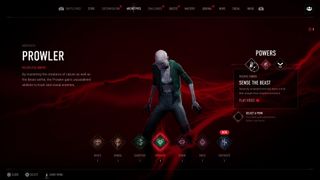
- Clan Power: Vanish (Become invisible and move rapidly for a brief duration)
- Passive Power: Sense the Beast (severely wounded enemies leave a trail that reveals their recent movements)
- Archetype Power: Scouting Famulus (Send out bats to scout an area, temporarily revealing enemies through walls)
- Pros: Sets up ambushes well, good in teams as a scout
- Cons: Bats are short-range and Passive feels unnecessary
The second Nosferatu is… not great, because their powers feel functionally useless once the initial ambush is over. Admittedly they can serve teams quite well if you're talking, marking locations of enemies, but the fast pace of gameplay and short range of the bats means that it's hard to do this.
On top of which, the Sense the Beast power just feels underwhelming. It's rarely useful when most combat encounters end with players being downed, and assuming you're in a team - which you should be with this class - somebody probably saw where they've gone anyway.
7. Siren (Toreador)
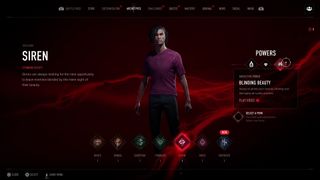
- Clan Power: Projection/Dash (Send out a projection of yourself, which you can dash to)
- Passive Power: Kindred Charm (Civilians in the Siren's vicinity become Charmed, making them faster to feed on for the Siren and their team. Charmed targets will also act friendly towards the Siren and their team, not triggering a breaking of the Masquerade while affected - except if killed)
- Archetype Power: Blinding Beauty (Slowly erupt into pure beauty, blinding and damaging all nearby enemies)
- Pros: Ground level is more accessible and… it's nice to be pretty?
- Cons: Powers just aren't very good
At the bottom of the barrel we have the Siren, who is in clear need of an upgrade. This is basically another support class, but unlike the Muse, their abilities aren't really helpful. Biting civilians is something you do outside of combat, so it's not really in need of being sped up, and while it's good to have ground level more accessible, you don't want to be on the ground, because it makes you a bigger target!
Aside from that, the Blinding Beauty and Projection/Dash powers are just not hugely helpful. The Blinding Beauty basically turns you into a flashbang, but it has a charge-up, a short range and doesn't last long - so if you're getting mangled in melee and want to escape, you'll probably be downed before you can finish it.
Best Bloodhunt archetype for beginners

We'd say the best archetype for beginners is the one that game provides in the tutorial - the Brute. As discussed above, it's a versatile, jack-of-all-trades class that can help players learn the ropes, and remains powerful even as you get better at the game.
Best Bloodhunt archetype for solos
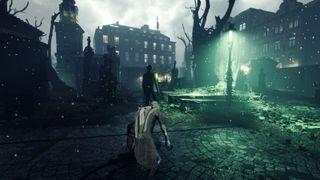
If you're playing solo matches rather than trios, we suggest avoiding the support Toreador classes altogether, and picking any of our top three - though the Enforcer in particular is good for solo experiences. Any class that emphasises all-rounder approaches and devastating singular targets - like melee - is going to excel in the cutthroat world of solo matches, and the Enforcer fills that niche nicely.
Sign up to the 12DOVE Newsletter
Weekly digests, tales from the communities you love, and more

Joel Franey is a writer, journalist, podcaster and raconteur with a Masters from Sussex University, none of which has actually equipped him for anything in real life. As a result he chooses to spend most of his time playing video games, reading old books and ingesting chemically-risky levels of caffeine. He is a firm believer that the vast majority of games would be improved by adding a grappling hook, and if they already have one, they should probably add another just to be safe. You can find old work of his at USgamer, Gfinity, Eurogamer and more besides.
